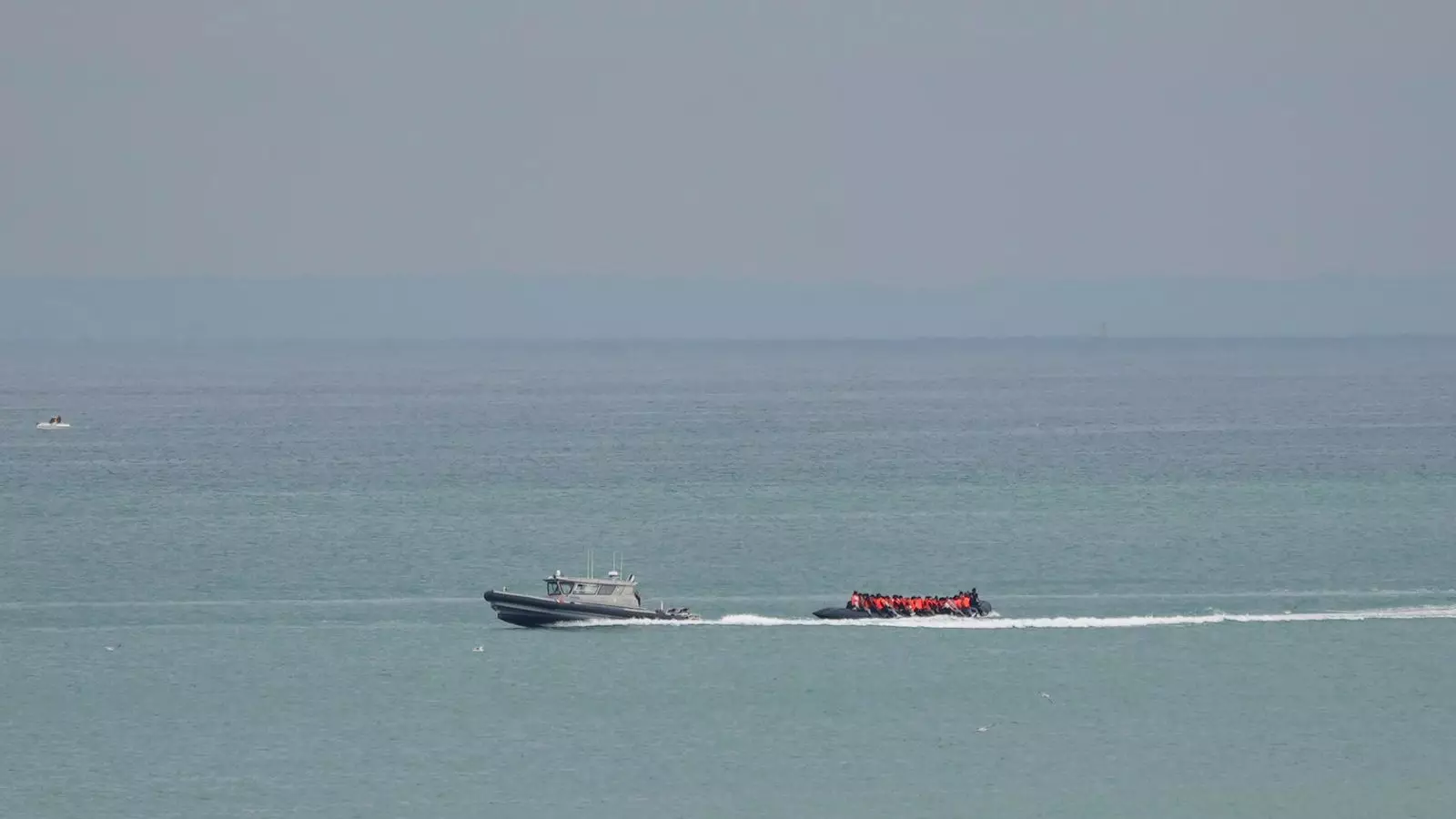The English Channel, a body of water separating the UK and France, has recently transformed into a perilous pathway for migrants seeking refuge. Recent incidents highlight the catastrophic consequences these individuals face as they attempt to navigate this treacherous route. The report of eight migrants losing their lives off the coast of France while trying to reach the UK underscores the urgent need to acknowledge the dangerous reality of such sea crossings. The tragedy occurred near Ambleteuse, where rescue efforts revealed that, despite the fatalities, 45 survivors were pulled from the water—an indication not only of the perils of the journey but also of the ongoing struggles of countless others undertaking similar risks.
Over a single weekend, French authorities managed to rescue approximately 200 individuals from various locations along the northern French coastline. These rescue missions came after multiple distress signals indicated that overcrowded and poorly equipped boats were in dire need of assistance. For instance, a vessel that was found in poor condition near Le Portel prompted the rescue of 55 people, while many others were saved in different operations along the coast. These statistics reveal a grim pattern; the increase in attempted crossings correlates directly with the heightened dangers faced by migrants, many of whom venture out to sea in flimsy dinghies that offer little protection against the whims of an unforgiving sea.
A recurring theme in these events is the persistent presence of human smugglers who exacerbate the crisis by offering dangerous transportation options. The reliance on these smugglers emerges as a direct consequence of the absence of safe, legal routes for asylum seekers—a sentiment expressed by advocacy groups and humanitarian organizations alike.
In the aftermath of the Ambleteuse tragedy, reactions from political figures have been telling. Foreign Secretary David Lammy described the situation as “awful,” drawing attention to the inadequate resources available to migrants making these perilous journeys. His acknowledgment of the “awful sort of rubber dinghies” points to a broader issue: the systemic failures in protecting and addressing the needs of desperate individuals fleeing violence and oppression.
Moreover, Steve Valdez-Symonds from Amnesty International has criticized the government’s response, arguing that the current security-heavy strategies not only ignore the urgent humanitarian crises but also contribute to the increase in deaths. His observations underscore an essential truth: as long as there is a refusal to establish safe asylum routes, the tragic incidents witnessed over the weekend will likely continue. This analysis draws attention to the critical responsibility shared by both the UK and French governments in developing collaborative strategies to address the root causes of migration and the associated risks faced by individuals seeking safety.
Tragically, this recent incident is not isolated. It follows yet another tragedy less than two weeks earlier where at least 12 migrants died when their vessel capsized in the Channel. Government figures shed light on a disheartening trend—over 30 lives have been lost during attempts to cross the Channel this year alone. With more than 21,000 individuals undertaking the journey between January and September, it is evident that as desperation mounts, so too does the risk.
Furthermore, the rising number of crossings starkly illustrates the failure of existing policies to deter boat journeys. Instead of stemming the tide of migration, the current political climate fosters a narrative of criminalization rather than compassion, thereby neglecting the humanitarian ethos that must guide responses to such crises.
In light of these tragic events, it is imperative that policymakers re-evaluate their approach toward migration and asylum. The repeated instances of loss of life should serve as a wake-up call to foster dialogues centered on human dignity and safety. Without a concerted effort to establish safe passage and empathetic solutions, this ongoing humanitarian crisis will only worsen, leaving the English Channel marked by tragedy and despair. The time for change is now—a collective responsibility beckons as the world witnesses the harrowing journeys undertaken by those in search of hope and safety.



Leave a Reply